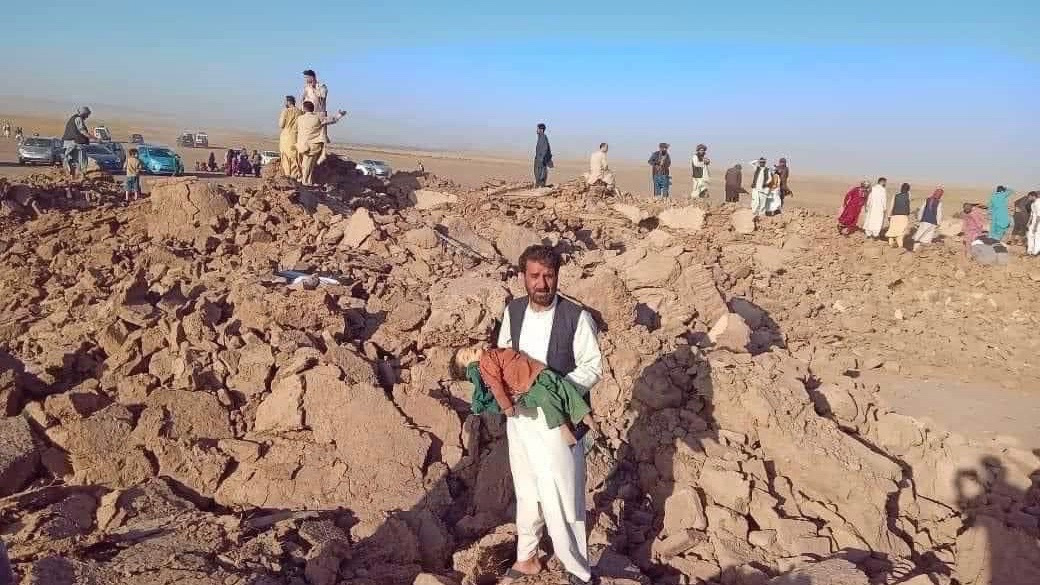The recent catastrophic earthquake in Afghanistan has once again exposed the devastating impact of capitalist policies and Western indifference on this war-torn nation. This tragic event, with an estimated death toll of 2,400 people and thousands injured, highlights the deepening humanitarian crisis in the country.
Afghanistan has experienced its deadliest earthquake in years, further compounding the suffering of its people. Remote western provinces such as Herat, Badghis, and Farah bore the brunt of this natural disaster, where mud-brick houses, roads, and entire villages crumbled under the powerful tremors.
In a region already grappling with the repercussions of decades of conflict and war, the earthquake has left countless individuals homeless, devastated communities, and disrupted the already fragile healthcare infrastructure. Yet, what's even more troubling is that these dire consequences are exacerbated by the neglect of the international community.
The earthquake has brought to light the harsh realities faced by Afghanistan's people, including their desperate need for proper shelter, food, healthcare, and clean drinking water. However, despite these pressing needs, the support for relief efforts remains insufficient due to the substantial cuts in international aid. This reduction in foreign assistance follows the Taliban's takeover in August 2021, severely impacting the country's GDP and socioeconomic indicators.
After the Taliban's rise to power, the United States froze Afghanistan's funds held on U.S. soil, while the European Union suspended billions in development and emergency assistance, including support for healthcare, agriculture, and law enforcement. The devastating impact of this economic strangulation is evident in the alarming rise in poverty levels and declining incomes, as noted by the UN Office for the Coordination of Humanitarian Affairs (OCHA).
The earthquake is a harsh reminder that capitalist policies, coupled with Western sanctions and disengagement, have pushed Afghanistan into a humanitarian abyss. The suffering of the Afghan people is a direct result of geopolitical power struggles, the exploitation of resources, and military interventions driven by capitalist interests.
In the face of this immense tragedy, the earthquake reveals the deeply entrenched inequalities and injustices perpetuated by the capitalist system. It demonstrates the urgent need for a new approach, one that prioritizes the welfare and well-being of the people over profit and power. The plight of Afghanistan serves as a stark critique of a global order that values capitalist interests over human lives, especially in regions already marginalized by decades of conflict and exploitation.
The earthquake is a tragic wake-up call, reminding us of the necessity to challenge the capitalist framework that has failed to address the fundamental needs of the world's most vulnerable populations. It underscores the urgency of reimagining a world order that places people, not profits, at its core.

